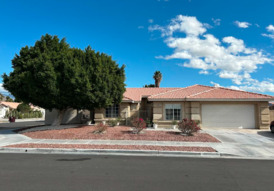About 25% of California residents have access to basic health services through Medicaid, such as inpatient and outpatient hospital care, primary physician services, transportation to medical services and long-term care in a nursing facility. Some states also offer optional benefits through state-specific waivers and programs, including speech and physical therapy, prescription drugs, prosthetics and vision and dental care.
This federally mandated, government-funded health plan is available to individuals who have a low income and few countable assets. In California, a Medicaid-expansion state, the program is called Medi-Cal and administered through the Department of Health Care Services.
Qualifying for Medi-Cal
Seniors aged 65 and older who meet the following criteria may be eligible for free long-term Medi-Cal coverage, including access to special home and community-based waiver services, requirements include:
- A monthly income (including pension and alimony payments) up to $1,242 per month, or
- A combined monthly income of up to $1,682 when applying for Medi-Cal with a spouse, and
- $2,000 or less in countable assets, such as cash and investments, or
- $3,000 or less in combined countable assets when applying for Medi-Cal with a spouse
Some assets are exempt, including:
- One personal vehicle
- Furniture and household goods
- Clothing
- A non-revocable, prepaid burial contract
- Most life insurance policies worth $1,500 or less
- A home in which the applicant and/or their spouse lives, regardless of the assessed value
If only one spouse (known as the institutional spouse) needs long-term Medi-Cal benefits, special income and asset rules are in place to protect the non-applicant, called the community spouse, from impoverishment.
The community spouse can keep up to 50%, a maximum value of $126,420, worth of the couple’s joint assets, and this amount may be increased through a court order. If the non-applicant is financially dependent on the institutional spouse,
up to $3,160.50 per month can be paid to the community spouse by the applicant.
Medi-Cal Share of Cost Seniors who are ineligible for Medi-Cal due to excess income may qualify for coverage on a
Share of Cost basis if they have high, ongoing medical expenses.
Also sometimes referred to as a Medicaid spend-down program, SOC provides participants with Medicaid benefits each month once they have spent a predetermined amount on approved medical expenses. Medicaid SOC enrollees aren’t eligible for Medicaid home and community-based waivers.
To learn more about Medi-Cal enrollment and the SOC program, contact the
County of Riverside Department of Social Services (Desert Hot Springs Family Resource Center) at (760) 288-3313 or the
Medi-Cal telephone service center at (800) 541-5555.
Assisted Living Home and Community-Based Waiver Seniors who qualify for full-scope, no-cost Medi-Cal coverage, meet the criteria for nursing facility care and would prefer to reside in and assisted living facility may be eligible for the
Assisted Living Waiver. Seniors who are already in a Medicaid-funded nursing facility may also be eligible, and if accepted, they’re provided with transitional assistance.
This Medicaid nursing home diversion program funds community-based services and supports that allow seniors to age in place in a noninstitutional setting. The ALW doesn’t cover the room-and-board portion of assisted living costs; it pays for care that’s not normally offered in an assisted living facility.
In order to participate in the ALW seniors must be able to have their care needs met through the available services, such as:
- Housekeeping and laundry
- Intermittent, skilled nursing
- Adult day health
- Transportation
- Assistance with activities of daily living
- Case management
Seniors accepted into the ALW must reside in a participating facility, and waiting lists may be in effect.
For more information on the ALW, contact
Archangel Home Health Inc., the ALW care coordinator agency for Riverside County at (562) 861-7047.































